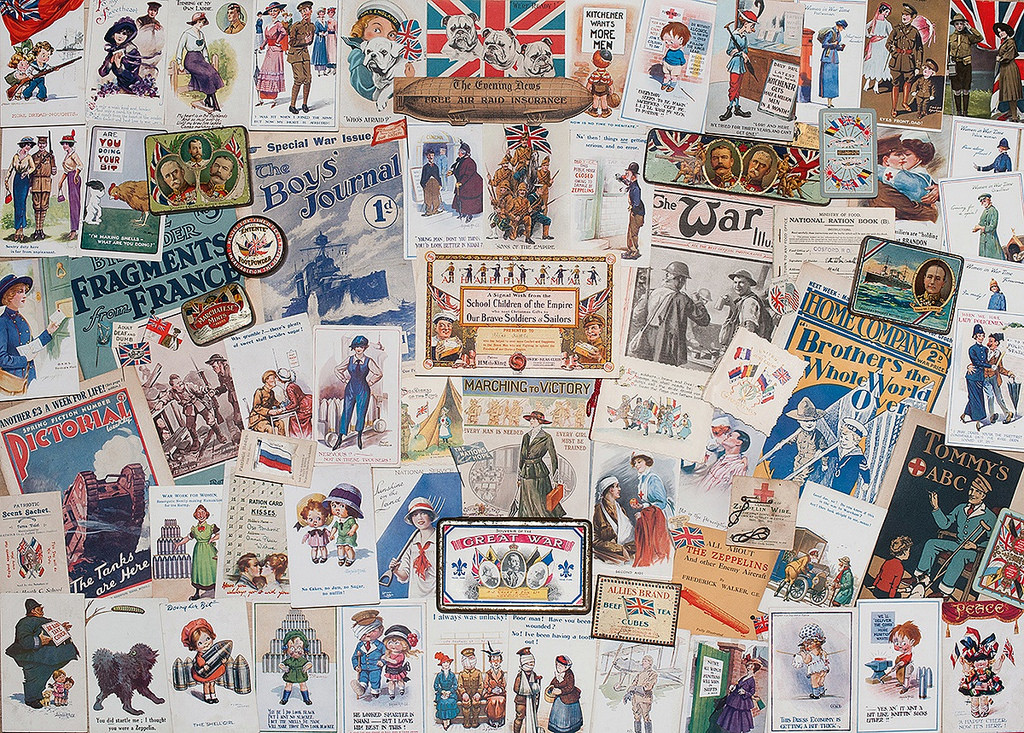Written by David Budgen.
Children growing up in the era of the First World War were encouraged to help with the war effort in a number of ways; between 1914 and 1918 they collected conkers and wool from hedgerows, gathered salvage, and worked in war industries and on the land. Much of their leisure time too would also have been taken up with the war. In particular, a wealth of fiction – novels and story papers – utilised the war as a setting. ‘Perhaps,’ argues Niall Ferguson, ‘the grim truth about war propaganda was that it had the greatest influence on the social group which mattered least to the war effort: children’. This influence can be seen in the aforementioned ways in which children partook in the war effort. And yet, although children’s books were undoubtedly topical responses to relatively contemporary events, the extent to which these works functioned as propaganda is worthy of some discussion.
Leave a Comment

